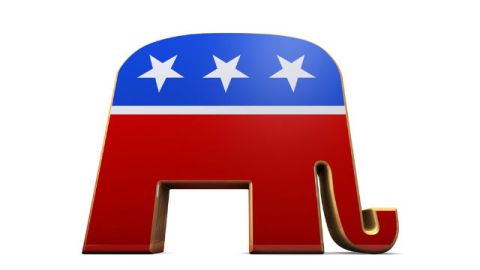The GOP’s Hundred-Year Hang-up

At the beginning of December, I naively predicted that legislators would put an end to the fiscal game of chicken they were playing with the American economy. As the month and the year expire with no sign of compromise on the horizon, a dive off the fiscal cliff looks increasingly likely. It’s fair to wonder about the roots of this impasse. Contrary to appearances, the origin of the crisis was not President Bush’s decision to set a 2010 expiration date for his tax cuts. Nor was it President Obama’s agreement to push off that date for two more years.
The fount of our present misfortune is deeper, a century old: the Republican party has never come to terms with the 16th Amendment, the provision added to the Constitution in 1913 permitting Congress to levy taxes on income. Then and now, the concept is offensive to Republicans’ very being.
The fundamentalism of the Republican anti-tax position was on display last week, when Speaker of the House John Boehner could not get his party to support his so-called “Plan B” — a pair of bills that would have limited defense cuts and extended the Bush-era tax cuts for all taxpayers earning under $1 million a year. Voting for any increase in tax rates on anyone — even the richest fraction of a percent of Americans — was seen as beyond the pale. So far beyond the pale that many members of the GOP are willing to risk automatic tax increases on everyone come January 1 rather than sign their names to a small tax increase for the super-wealthy now.
Why is the GOP so averse to higher taxes? Because a major wing of the party continues to be allergic to the income tax, period. Dial the clock back a century to the debate over the 16th Amendment. Sereno E. Payne, a Republican congressman from New York, offered this critique:
As to the general policy of an income tax, I am utterly opposed to it. I believe with Gladstone that it tends to make a nation of liars. I believe it is the most easily concealed of any tax that can be laid, the most difficult of enforcement, and the hardest to collect; that it is, in a word, a tax upon the income of honest men and an exemption, to a greater or lesser extent, of the income of rascals; and so I am opposed to any income tax in time of peace…I hope that if the Constitution is amended in this way the time will not come when the American people will ever want to enact an income tax except in time of war.
Opponents of the amendment lost their fight and Congress subsequently approved a federal income tax, but the anti-tax theme is very much alive today. It is the rallying cry of Tea Party Republicans, who aren’t as weak as they appeared to be in the immediate aftermath of the November election. It is the position of those who still hope to repeal the 16th Amendment. It is the root of the mess in Washington, and according to a Reuters poll, American voters believe Republicans are the party to blame.
Image credit: Shutterstock.com
Follow Steven Mazie on Twitter: @stevenmazie





